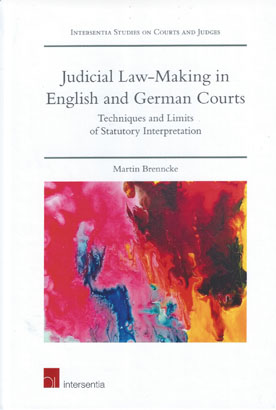We are now closed for the Christmas and New Year period, reopening on Friday 3rd January 2025. Orders placed during this time will be processed upon our return on 3rd January.

How far do contemporary English and German judges go when they interpret national legislation? Where are the limits of statutory interpretation when they venture outside the constraints of the text?
Judicial Law-making in English and German Courts addresses the often neglected relationship between statutory interpretation and constitutional law. It is concerned with the limits of judicial power in a legal system. It critically analyses, reconstructs and compares judicial law-making in English and German courts from comparative, methodological and constitutional perspectives.
It maps the differences and commonalities in both jurisdictions and then offers explanatory accounts for these differences and similarities based on constitutional, institutional, political, historical, cultural and international factors.
It will be shown that a fundamental unity of statutory interpretation exists in English and German judicial practice in the sphere of rights-consistent and EU-conforming judicial law-making, but not in the area of judicial law-making under conventional canons of statutory interpretation.
Judicial Law-making in English and German Courts is the first monograph in English that compares English and German legal methodology as applied in judicial practice, appealing to those interested in statutory interpretation, comparative law or legal methodology.